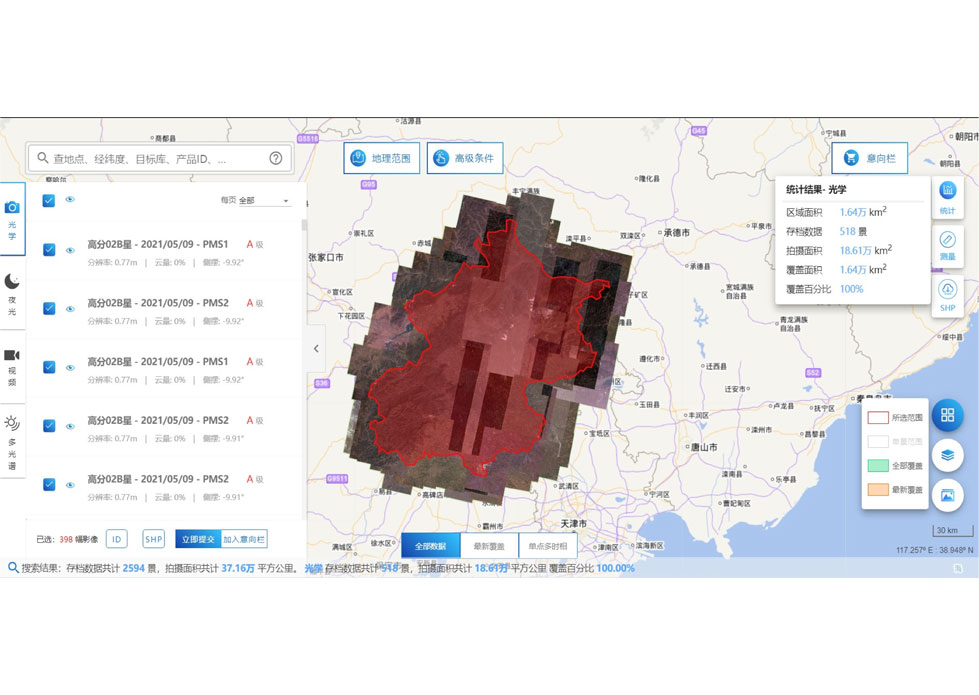SATELLITE DATA MANAGEMENT

Descrição do produto
DATA MANAGEMENT SYSTEM
SATELLITE DATA MANAGEMENT FEATURES
1
The data management system is the center of the storage, management and application service of satellite data products.
2
It is mainly responsible for the storage, organization, application, management and maintenance of JL1 satellite service products.
SATELLITE DATA MANAGEMENT ADVANTAGES
1
Improved Data Accuracy: With the help of satellite data management systems, satellite data can be processed and analyzed in real-time. This can help improve the accuracy of data as it is less prone to errors caused by manual processing.
2
Better Decision Making: Satellite data management systems can provide near-real-time information about various aspects of the Earth's satellite environmental monitoring, such as weather patterns, vegetation, and natural disasters. This information can help decision-makers make informed decisions regarding resource management, disaster response, and environmental protection.
3
Cost-Effective: Satellite data management systems can be cost-effective compared to traditional data collection methods. For example, satellite data can cover large areas quickly and efficiently, reducing the need for ground-based data collection.
4
Timeliness: Satellite data management systems can provide data in near-real-time, allowing for faster decision-making and response to events such as natural disasters.
5
Consistency: Satellite data management systems can provide consistent data over time, allowing for better tracking of changes in the Earth's environment.
6
Accessibility: Satellite data can be accessed from anywhere in the world, making it a valuable tool for global monitoring and decision-making.
7
Satellite remote sensing technology: Satellite data management systems can be used to monitor remote or hard-to-reach areas that are difficult to access using traditional data collection methods.
Changguang Jilin 1 satellite constellation is the core project under construction by CGSTL. The first phase of the project consists of 138 high-performance optical remote sensing satellites covering video, high resolution, wide band, infrared, multispectral and other series.

